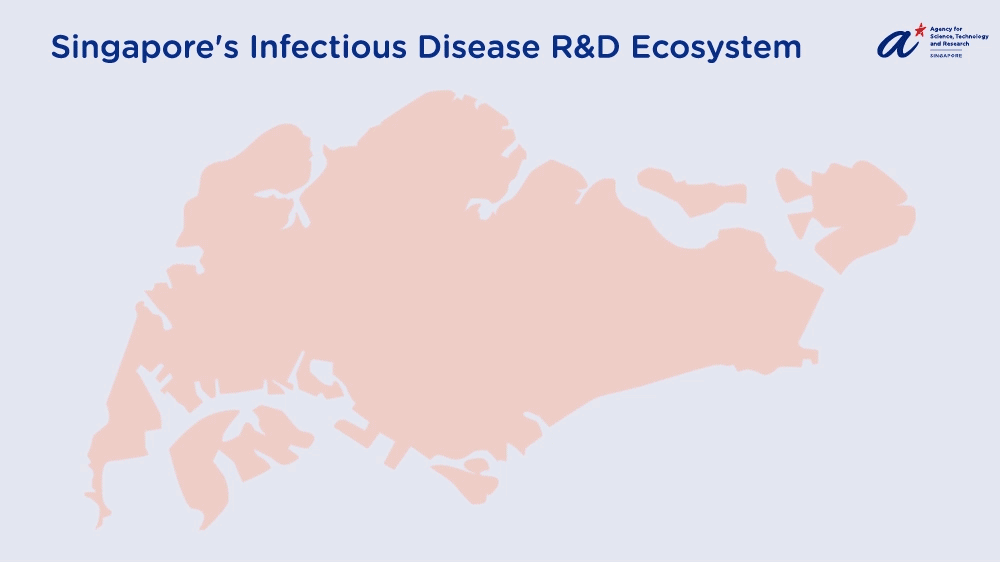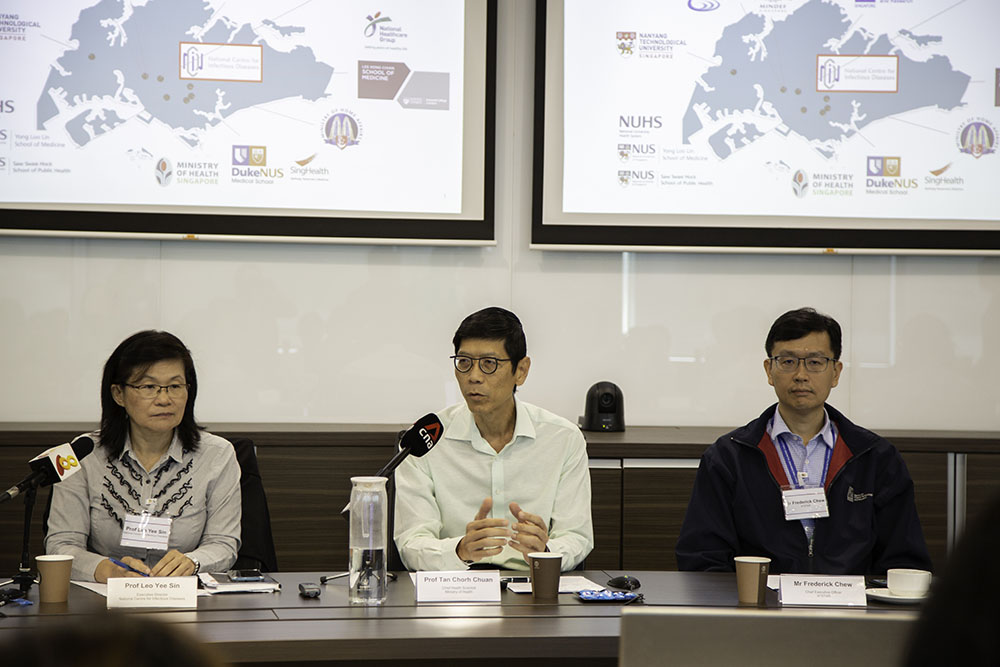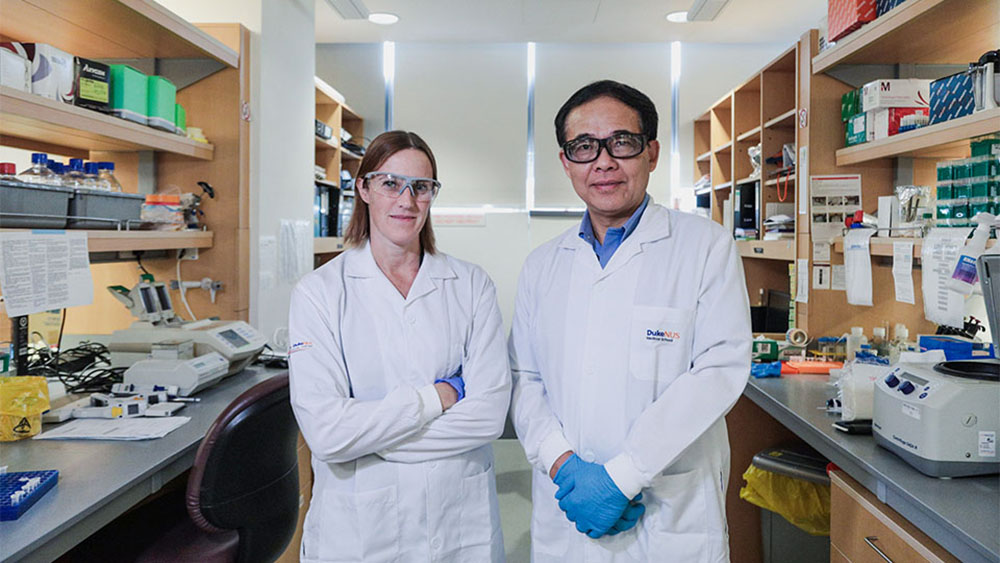Since the Severe Acute Respiratory Syndrome (SARS) outbreak in 2003, Singapore is now better prepared to respond to the COVID-19 pandemic. In terms of R&D, Singapore has placed emphasis on a multi-disciplinary and collaborative approach to research on infectious diseases. This spans across A*STAR, the Institutes of Higher Learning such as NUS, NTU, Duke-NUS, and public hospitals.

At a press conference chaired by the Ministry of Health (MOH) Chief Health Scientist Professor Tan Chorh Chuan in February 2020, scientists and researchers from A*STAR, the National Centre for Infectious Diseases (NCID) and Duke-NUS Medical School shared their work surrounding the novel coronavirus pandemic. The conference highlighted the Singapore R&D ecosystem’s efforts to understand the virus; and how Singapore researchers are part of the global race to combat the virus, working with international organisations for potential vaccine trials, and undertaking efforts to repurpose drugs for treatment and vaccines.

Over the years, A*STAR has built deep capabilities in infectious diseases research. While microbiology remains important, our capabilities in other areas such as genomics, molecular biology, immunology, bioinformatics, data analytics, and even productisation of diagnostics, are necessary to build a strong ecosystem for Singapore to be a hub to study and tackle infectious diseases.
In announcing the Resilience Budget in March 2020, Deputy Prime Minister Heng Swee Keat said that COVID-19 had reinforced the importance of R&D investments to prepare for critical challenges, such as in managing pandemics and ensuring food security.
Singapore’s R&D efforts have led to the development of cutting-edge technologies that help track and stem the spread of COVID-19. For example, Fortitude Kit 2.0, a diagnostic kit developed by A*STAR and Tan Tock Seng Hospital, can accurately detect the presence of the SARS-CoV-2 virus, which causes COVID-19. It has been implemented in 10 local hospitals and deployed to various countries.
A research team led by Prof Wang Linfa, Director, Programme in Emerging Infectious Diseases, Duke-NUS Medical School, has developed a serological test that detects the presence of coronavirus antibodies. The test advanced Singapore’s contact tracing efforts; in particular, it traced the source of infection of two COVID-19 clusters here. Duke-NUS Medical School is working with the Coalition for Epidemic Preparedness Innovations (CEPI), and other international partners to develop coronavirus vaccines and will conduct some of the trials in Singapore.











